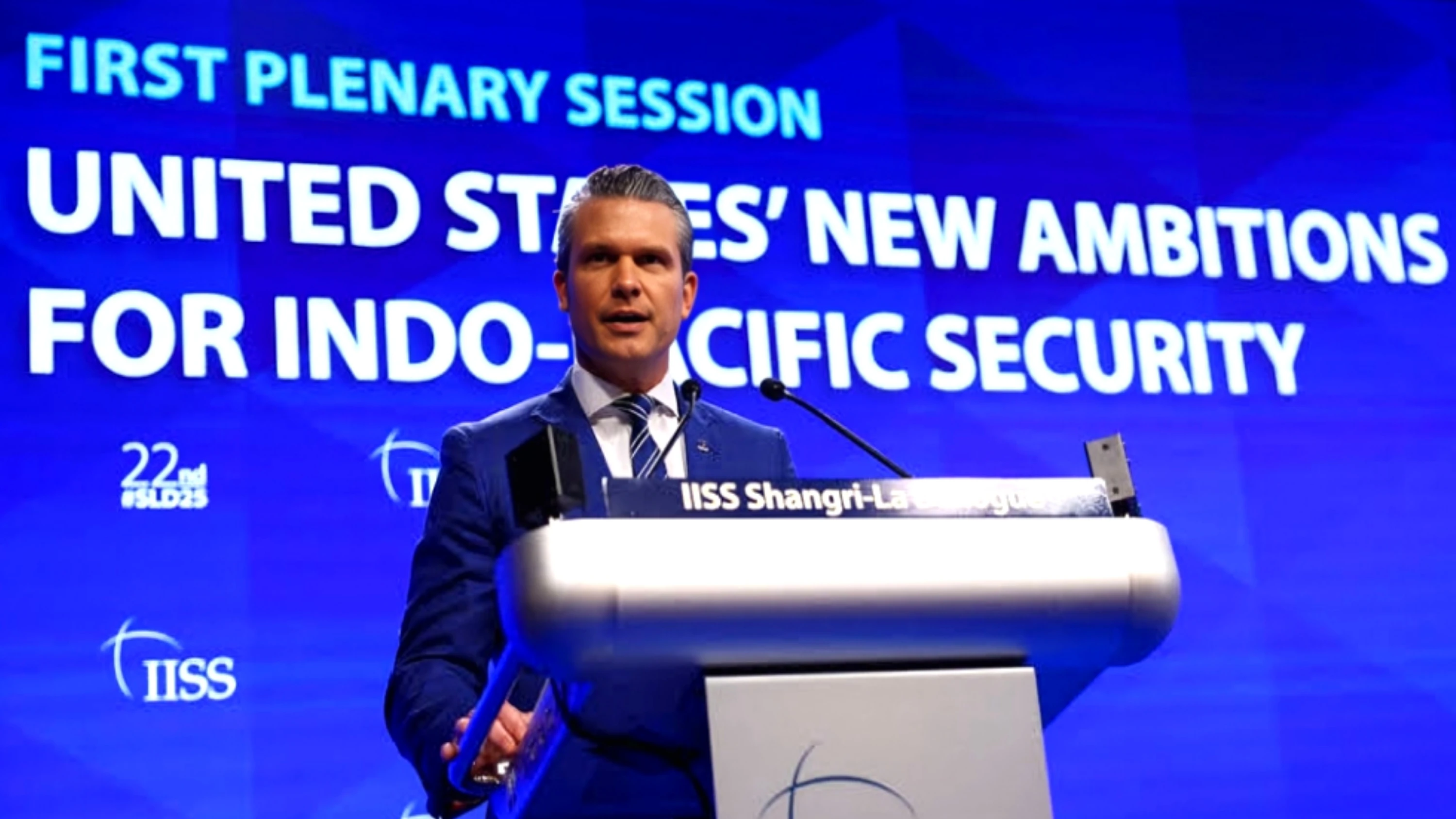Singapore: U.S. Defense Secretary Pete Hegseth delivered a stark warning about China’s military ambitions on Saturday, urging America’s allies in the Indo-Pacific region to ramp up defense spending in response to what he described as a real and potentially imminent threat.
Speaking at the Shangri-La Dialogue in Singapore—Asia’s leading security summit—Hegseth stressed that countering China’s influence remains a top priority for the Trump administration. This was his debut appearance at the annual forum, which brings together defense leaders, military officials, and diplomats from around the world.
“The threat from China is not theoretical—it’s real, and it could arrive sooner than we expect,” Hegseth said, emphasizing that any Chinese attempt to take Taiwan by force would have catastrophic consequences for the region and the broader international order. He reiterated President Donald Trump’s assertion that China would not invade Taiwan under his watch.
Beijing claims Taiwan as its own territory and has intensified military drills near the island, sparking fears of conflict. Taiwan’s government, however, firmly rejects China’s sovereignty claims, asserting that only its people have the right to decide the island’s future.
Hegseth warned that China is actively preparing to use military power to shift the Indo-Pacific’s strategic balance, a message aimed at rallying regional allies to invest more in their own defense. Yet his call for increased military spending could stir unease among partners, despite expectations of a generally favorable audience in Singapore.
China’s absence from the forum—its defense minister Dong Jun declined to attend and only an academic delegation was sent—cast a shadow over the event. Hegseth has previously criticized European allies for under-investing in defense, and in February accused them of treating the U.S. like a “sucker” during remarks at NATO headquarters.
During the forum, French President Emmanuel Macron supported Hegseth’s push for greater European defense contributions, acknowledging that the U.S. had a point. Hegseth, in turn, pointed to Europe’s new commitments, such as NATO countries pledging to spend 5% of GDP on defense, including Germany.
He questioned why key Asian allies were not matching this level of commitment, especially with the looming threats from both China and North Korea. “It doesn’t make sense for Europe to ramp up defense spending while major Indo-Pacific allies fall short,” he argued.
Dutch Defense Minister Ruben Brekelmans welcomed Hegseth’s acknowledgment that Europe was stepping up. “It’s probably the first time I’ve heard this U.S. administration say that so clearly,” he said.
However, Democratic Senator Tammy Duckworth, co-leading a bipartisan delegation to the forum, criticized Hegseth’s tone toward Indo-Pacific allies. “I found it patronizing,” she remarked, though she noted his reaffirmation of U.S. commitment to the region was important.
According to a new report by the International Institute for Strategic Studies (IISS), regional defense spending in Asia has remained at an average of 1.5% of GDP over the last decade, though some countries are now expanding their defense industries and forming broader international partnerships in response to rising threats.
Hegseth proposed a division of focus among allies, suggesting Europe prioritize its own continent’s security to allow the U.S. to concentrate more heavily on the Indo-Pacific. “We want to leverage our position as an Indo-Pacific power to support partners here, but Europe must take care of its own backyard,” he said.
Still, some recent U.S. decisions have raised questions about its priorities. Earlier this year, the Pentagon shifted air defense systems from Asia to the Middle East amid tensions with Iran, involving a massive logistical effort of 73 C-17 flights.
Hegseth sought to reassure foreign leaders that Washington respects their traditions and sovereignty. “We’re not here to preach or impose our ideology,” he concluded. “We want to collaborate where our interests intersect.”








